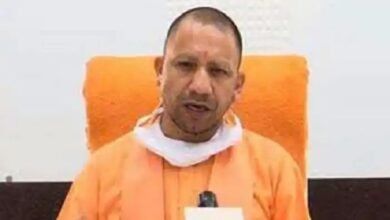[ad_1]
The 2023 Assembly polls in Chhattisgarh was the first time Amit Jogi led the Janta Congress Chhattisgarh-Jogi (JCC-J) — whose political legacy he inherited after the death of his father Ajit Jogi in 2020 — into an election. And the results were disastrous.
The party founded by the first Chief Minister of Chhattisgarh was white-washed, losing even the five seats it had won in 2018.
Amit told The Indian Express that he had tried his best to unite smaller regional parties, and that in the future too, that would be his top priority, as the thumping majority for the BJP has set the narrative for the Lok Sabha elections, pushing smaller parties into an existential crisis.
The JCC-J was formed in 2016 by Ajit Jogi after he parted ways with the Congress, with which he had been associated since 1986. The JCC-J contested its first election in 2018 as an ally of the Bahujan Samaj Party (BSP), and got support of the state’s 7.61% Dalit and tribal voters, to win five seats — Marwahi, Kota, Lormi, Baloda Bazar and Khairagarh.
The party also polled more votes than the victory margin in 12 other seats, while its ally, the BSP, got 3.87% votes to win two seats — Jaijapur and Pamgarh.
However, after Jogi’s death, the party began to grow weak. Amit’s nomination from his father’s seat from Marwahi for the bypolls in 2020 was rejected over issues with his caste certificate. One other MLA, Devwrat Singh, passed away in 2021, while two others deserted the party, leaving Ajit’s wife Renu as the lone MLA leading up to the 2023 polls.
Amit, who was the Marwahi MLA from 2013 to 2018, said their family faced multiple personal problems and he could not concentrate on party activities for five years, and that they became active barely 55 days before these elections.
This time, not just the JCC-J, the BSP, which tied up with other parties, was also whitewashed.
Amit claimed he had sensed the outcome early on. “From Day 1, I’ve been saying there needs to be coordination with Hamar Raj (a new tribal party), though it was the Gondwana Gantantra Party (GGP) that made the bigger dent on our votes. Till the very end, I made every effort to strike an understanding with them. We were expecting at least some representation in the Vidhan Sabha, which did not happen.”
The only seat where the JCC-J was in the running was in the family borough of Marwahi, where they came second, trailing the BJP candidate by 12,078 votes, while smaller parties like the GGP and Hamar Raj collectively polled 14,427 votes i.e., more than the victory margin.
The JCC-J leader said what is worrying is that in all four mainland states, small, regional parties have been wiped out, adding that the national-level narrative was changing, with the BJP’s polarisation working. The Lok Sabha elections could end up as a unipolar contest, Amit said.
He said, “It is an unequivocal defeat for regional parties. Every party is facing an existential crisis. Where are the regional parties in the four states (Rajasthan, Madhya Pradesh, Chhattisgarh and Telangana)? Even in Telangana, the BJP has increased its presence. If there is a change in the national political narrative, are we heading towards a US-UK kind of two-party system? Even the BSP and the AAP, which were national alternatives to the BJP and Congress in Chhattisgarh once, have been decimated.”
“So, regional parties need to rethink from zero. People have not reacted to regional issues. There was a communal factor for the first time. Corruption was another major factor. Credit goes to the BJP central leadership, as the state leadership was in a coma. The repeated efforts of PM Modi got them the results they wanted. No one expected the BJP to win big. The Congress relied entirely on one man (Bhupesh Baghel). They kept shielding him from tribal areas, where there was unprecedented plunder of mineral wealth. On the one hand, they kept speaking of a particular industrialist. On the other, they violated the PESA (Panchayats Extension to Scheduled Areas Act) law,” said Amit.
On the future of his party, he said, “We have elections ahead in the next year, and we should prepare to contest all of them. We need to create coordination between various regional forces within the state. I will be talking with smaller parties. I remember the words of Benjamin Franklin – either we all hang together, or most certainly we all will be hanging separately. So now is the time for all of us to come together and create a united regional narrative, or bipolarity will consume all of us.”
[ad_2]





